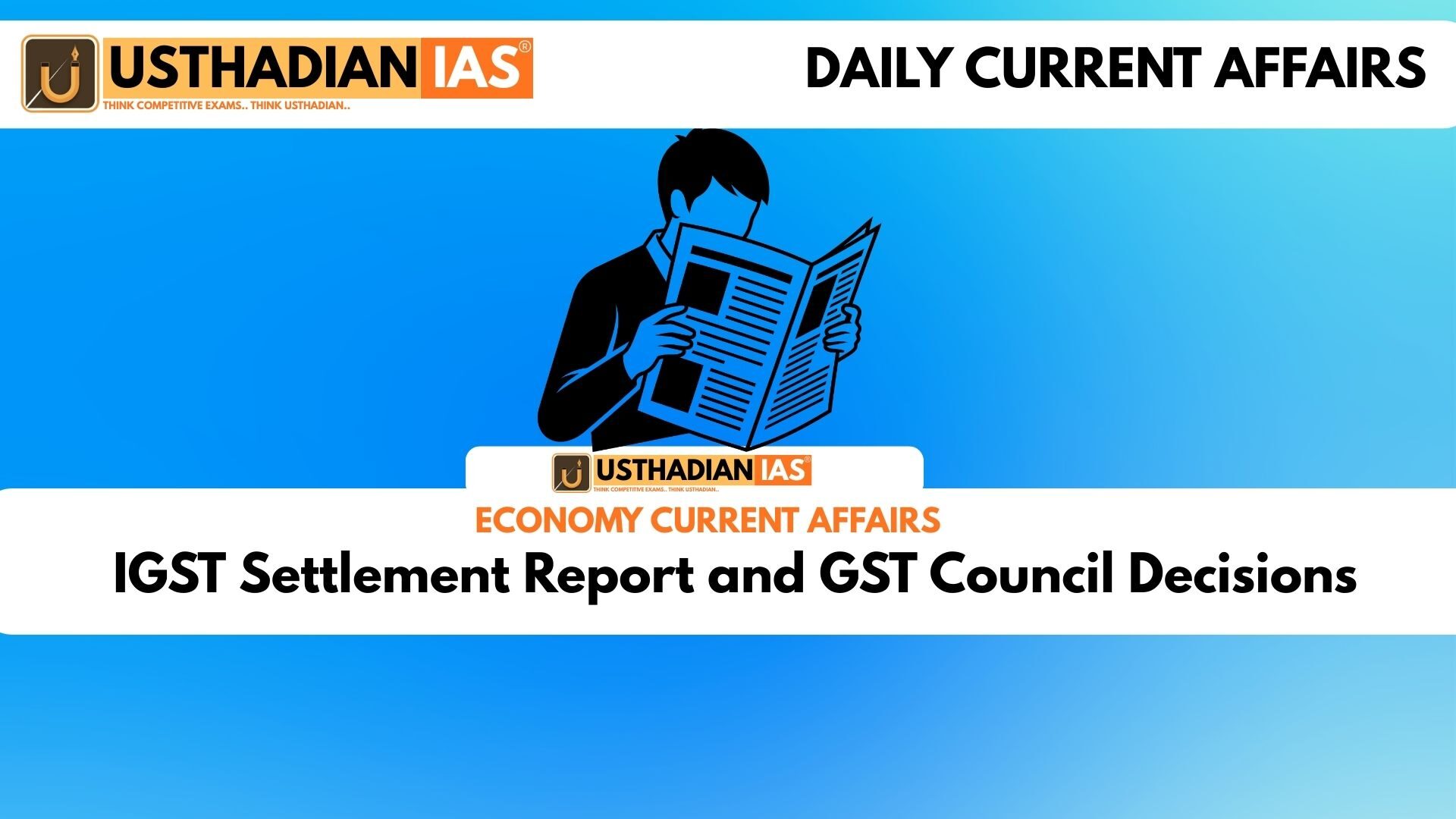GST Council Meeting Highlights
IGST Settlement Report and GST Council Decisions: The 56th GST Council meeting was recently held in New Delhi. Tamil Nadu was an active participant, with its Finance Minister Thangam Thennarasu emphasizing critical tax reform needs. A major focus was the long-pending issue of the Integrated Goods and Services Tax (IGST) settlement.
IGST Settlement Decision
The Council has approved the full implementation of the IGST settlement report. This will be executed before December 2025, ensuring fairer tax distribution among states and the Centre. The move is expected to resolve disputes on revenue allocation, particularly for import-related taxes.
Static GK fact: IGST is levied on inter-state supply of goods and services, as well as imports into India.
Role of Tamil Nadu
Tamil Nadu raised concerns about delayed settlements that affect state revenues. Minister Thangam Thennarasu underlined the need for timely disbursement. The Council’s acceptance of the committee’s recommendations is seen as a victory for states demanding greater fiscal clarity.
Static GK fact: Tamil Nadu is one of India’s leading industrial states, contributing significantly to GST revenue through sectors like automobiles, textiles, and electronics.
Compensation Cess Extension
Another important decision was the recommendation to extend the compensation cess on sin goods for two to three months beyond October 31, 2025. This cess is imposed on products like tobacco, alcohol, and luxury cars to compensate states for revenue loss after the introduction of GST.
Static GK fact: The GST (Compensation to States) Act, 2017, ensures states are compensated for loss of revenue during the initial five years of GST implementation.
Importance of the Settlement
The settlement of IGST dues strengthens the federal tax framework. It provides transparency, improves fiscal stability, and ensures equitable distribution of tax income. States will now have more confidence in the system, and disputes over pending arrears will reduce.
Static GK Tip: The first GST Council meeting was held in September 2016 after the passage of the 101st Constitutional Amendment.
Way Forward
The Council’s decision to act before December 2025 is crucial. It will not only address fiscal stress for states but also strengthen the trust between the Centre and states in cooperative federalism. With both settlement and cess extension measures, the GST regime is moving towards greater stability and accountability.
Static Usthadian Current Affairs Table
IGST Settlement Report and GST Council Decisions:
| Topic | Detail |
| 56th GST Council Meeting | Held in New Delhi with Tamil Nadu participation |
| Key Agenda | Implementation of IGST settlement report |
| IGST Settlement Timeline | To be completed before December 2025 |
| Tamil Nadu Role | Finance Minister Thangam Thennarasu raised settlement concerns |
| Compensation Cess | Extended by 2–3 months beyond October 31, 2025 |
| Sin Goods | Tobacco, alcohol, luxury cars under cess |
| IGST Levy | On inter-state supplies and imports |
| GST Introduction | Came into effect on July 1, 2017 |
| Constitutional Basis | 101st Constitutional Amendment Act, 2016 |
| GST Council First Meeting | Held in September 2016 |








